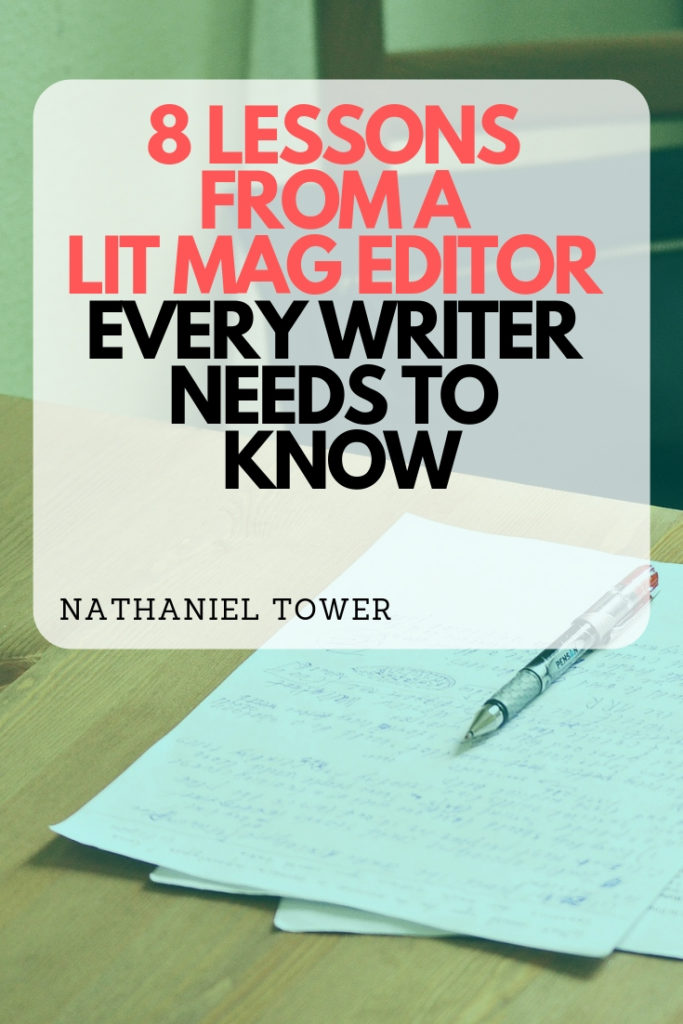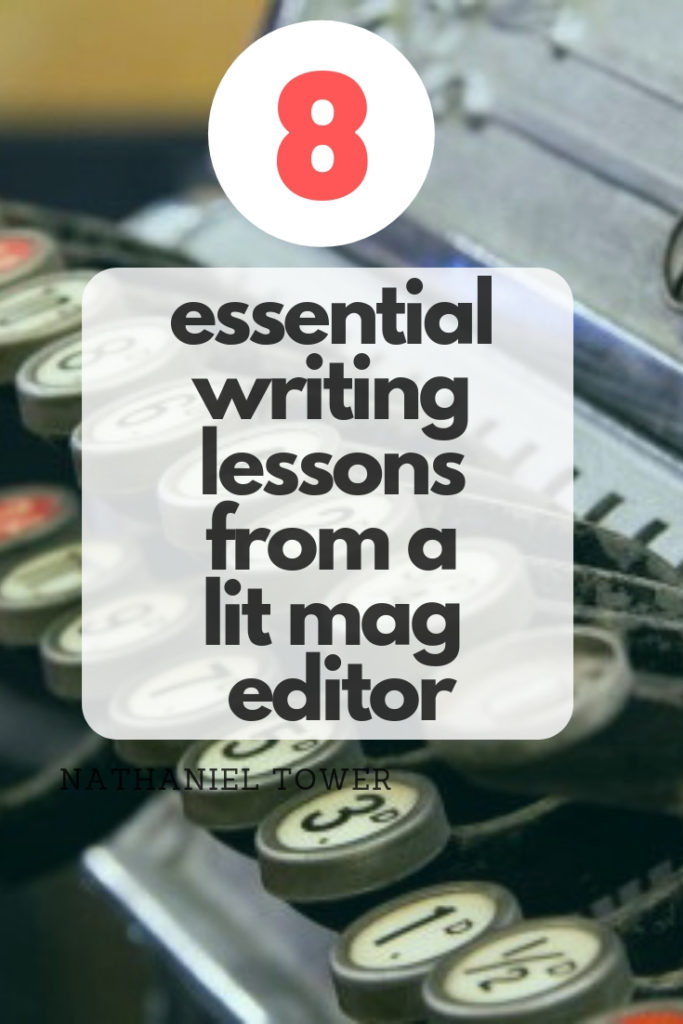Last Updated on March 10, 2019 by Nathaniel Tower
Running a literary magazine is a lot of work. It’s also a great learning experience. Here are eight important things I learned during my eight years as founding editor of Bartleby Snopes.

1. Most Writers are Good People. Sure, there are a few jerks who respond to rejections with a tirade of profanity, but the vast majority of the writers I’ve corresponded with over the past eight years have been good people. They are the type of people who help others out. They are compassionate. They are grateful. They care about more than simply getting something published. The writing community is a very supportive one with some real standout assholes mixed in. But the good people will always outnumber and outshine those assholes.
2. Good Writing Gets Rejected. We’ve all heard “it’s not you, it’s me” before. Usually, our gut feeling is that it really is us. But it’s often not. Lit mags reject good and even great writing that simply doesn’t fit. There was more than one occasion where I was blown away by a story and really wanted to publish it, but it simply wasn’t the right piece for Bartleby Snopes at the time. Maybe we’d just published something similar (albeit inferior). Or maybe it was just way off our aesthetic. It happens. So when you get that rejection that says the editors were really impressed but the piece just wasn’t right for them, you should believe them. There’s only a small chance that they’re lying to make you feel better about yourself. But they really have no motivation for lying to you.
3. Bad Writing Gets Published. On the flipside, some really bad writing does get published. And it seems like bad writers are the ones who are quick to respond to a lit mag who’s rejected their work to let them know it got published by Shitty Lit Mag Quarterly. There was more than one occasion where a submission made me cringe. But I cringed even more when I received that follow-up boast indicating it was published elsewhere, “no thanks to you, asshole.” It’s a shame when so much good writing goes unpublished that some really bad writing gets published. And I personally have had some really bad stuff published, stuff that makes me cringe when I look back on it.
4. Most Submitters Don’t Read Before Submitting. I’m an analytics junkie. I’ve spent a lot of time analyzing pathing reports. By far the most common path a submitter takes on a lit mag’s website is home page > submissions > submit. Only about 20% of writers take the time to read what a lit mag publishes before they submit. And that’s a fairly generous estimate. Very few ever come back after they submit, unless it’s to submit again. And sadly, many of the published writers don’t come back to read faithfully either.
5. A Lit Mag Is Not a Get-Rich Quick Scheme. In fact, most lit mags aren’t profitable at all. In fact part two: they often operate in the red. Between website hosting, submission manager fees, publishing costs, advertising, and other expenses, running a lit mag isn’t going to be a profitable venture for most. In its best years, Bartleby Snopes netted about $100, and that money just went back into the magazine the following year to give our published writers a little more. Total transparency: eight years of managing Bartleby Snopes wouldn’t have paid a single month of rent.
6. Exposure Isn’t Always Enough. In most cases, a lit mag needs to offer more than just exposure. Exposure is usually another way of telling you that you get nothing at all. Sure, there are some lit mags that get a ton of traffic, but remember that a great deal of that traffic is just other writers looking for a place to submit their work. If you aren’t at least getting a contributor copy or an opportunity to earn some money through a monthly contest, then you are often giving your work away for nothing. Yes, there are exceptions out there. There are times when it will be rewarding to be published by an exposure-only magazine. Just make sure it’s one you really like. And please, for the love of everything sacred in literature, never pay to submit your work to a place that only gives you exposure!
7. Even Really Good Writers Have Really Bad Stories. Sometimes you get a submission from a writer you really admire. You never accept a story based on who wrote it, but occasionally you’ll see an author’s name and get excited about the possibility of accepting it. Then you read it and your heart sinks. The story’s not good at all. Not even remotely. In fact, it’s a festering pile of pseudo-literary shit. Now you not only don’t get to publish that awesome author, but you also have to send him or her a rejection. And then you’re left wondering why that writer sent you the worst thing he or she ever wrote.
8. I Still Have A Lot to Learn About Writing. Bartleby Snopes made me a much better writer. If you haven’t worked for a lit mag, I highly recommend doing so. Reading such a diverse range of work will teach you a ton about your own writing. But even after eight years of reading so many great stories and learning about so many of my own mistakes, I know I haven’t even cracked the surface of what I need to learn as a writer. I’d like to think I’ll have more time to learn now that Bartleby is in my past, but probably the opposite is true. Without Bartleby, I will learn a lot less and at a much slower pace.
A bonus lesson: Managing a lit mag is a tireless and thankless job. (Although many people do thank you in the end.) Needless to say, I have a lot more respect for the whole submissions process now, and I will certainly never be an asshole to an editor ever again. Not that I ever was. At least I don’t think so.


I don’t want to be one of those people who never thanked you for running one of my stories. I still ALWAYS cite Bartleby Snopes as a publication credit in my query letters.
Many thanks to you Nathaniel and your staff for being one of my first publishers and for all the fine fiction you’ve published over the years. I enjoyed reading it. Short fiction needs people like you. Good luck with all your future endeavors.
Thank you, Paul!